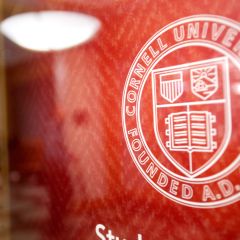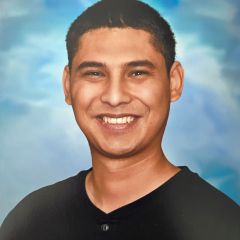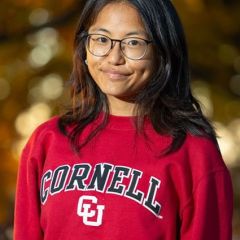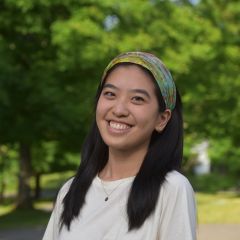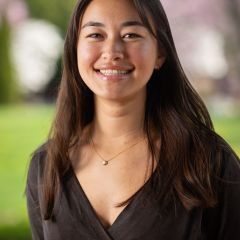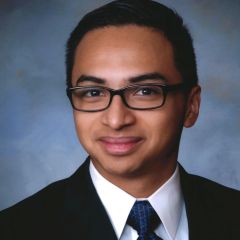South Asia Program
Stablecoin Not a Cure-all for Current Financial System Inefficiencies

Eswar Prasad, SAP
Eswar Prasad of Cornell University discusses how stablecoins could affect countries with weak payment systems.
Additional Information
TCI Distinguished Lecture: Nudging People (and Policy) Towards Better Diets and Nutrition: Insights from South Asia, with Purnima Menon
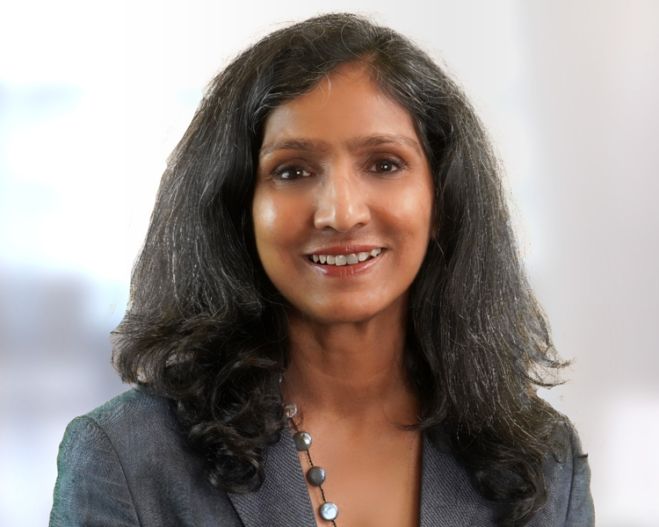
September 30, 2025
12:20 pm
Mann Library, 102
Purnima Menon, an expert on food and nutrition policy, will deliver a lecture at Cornell University on Tuesday, September 30, at 12:20 p.m. ET in Mann Library 102. The lecture is entitled “Nudging People (and Policy) Towards Better Diets and Nutrition: Insights from South Asia.” The event is part of the Tata-Cornell Institute for Agriculture and Nutrition (TCI) distinguished lecture series.
The lecture will be held in a hybrid format. Virtual participants can register to attend via Zoom. Boxed lunches will be served.
Menon is the senior director for food and nutrition policy at the International Food Policy Research Institute (IFPRI). She is also the acting director for transformative strategies.
Additional Information
Program
Einaudi Center for International Studies
South Asia Program
18 Cornellians Receive Fulbright Awards
With Support from Einaudi
They will conduct research, study, and teach English in Canada, France, Honduras, India, Jamaica, the Netherlands, Norway, and Taiwan.
Most will be on site by October.
The Fulbright program is the U.S. government's flagship international educational exchange program. The Einaudi Center administers the Fulbright program at Cornell, providing all the resources students and alumni need to apply for Fulbright funding for international experiences.
Cornell consistently ranks as a “top producer” among universities with the highest number of candidates selected for the Fulbright U.S. Student Program. With this year's Fulbrighters, we are celebrating over 600 awards since the 1940s!
We're excited to congratulate conservationist Kyrin Pollock, one of this year's five Fulbright–National Geographic Award recipients—and the first Cornellian ever to receive the prestigious award. Kyrin will spend the year working with the Olokhaktomiut Hunters and Trappers Committee in Ulukhaktok, Canada, to document how industrial noise is transforming Arctic waters. Watch for more news about her journey from National Geographic and Einaudi.
The next cycle of Fulbright U.S. Student Program is open now. The Einaudi Center encourages Cornell undergraduate students, graduate students, and recent alumni to explore the opportunity and apply.
Meet the Fulbrighters
Alexis Anderson '23
Honduras
Research: Impacts of Coastal Pollution on Stony Coral Tissue Loss Disease in Roatán, Honduras
“Improving the knowledge base on how SCTLD spreads is critical to help stop further global expansion of the disease.”
Erin Connolly '22
Norway
Research: Phorid Fly Biodiversity Across the Latitudinal Gradient of Norway
“Early months of my work in Trondheim will be based in the laboratory …, while the later months of the award will be dedicated to … a diurnal sampling scheme fieldwork project.”
Isabella Culotta '22
Netherlands
Master of Design: Probing Our Perceptions of Waste at the Design Academy of Eindhoven
“Our aversion to speaking and even thinking about our waste constrains our discovery and implementation of innovative waste management systems.”
Gabriel Godines '23
Taiwan
English Teaching Assistant
“My experience in the U.S. Navy sparked my interest in East Asia, particularly in fostering understanding between the U.S. and China.”
Tenzin Kunsang '25
India
Research: Reconceptualizing Education in Exile: Transnationalism in the Tibetan Children's Village
“These findings will help … to promote domestic language and cultural preservation among Tibetan-American students amid the politicization of schools in Tibet.”
Michelle Lee '25
France
English Teaching Assistant
“Due to the COVID-19 pandemic in 2020, I missed an opportunity to study abroad in France. This setback has motivated me to regain the chance to experience the country firsthand.”
Tiffany Liu '22
Taiwan
English Teaching Assistant
“I … hope to observe the various technological initiatives currently pioneered by the Ministry of Education in Taiwan, including the movement to integrate AI.”
Kyrin Pollock, MEng '19
Fulbright–National Geographic Award Recipient (Canada)
Research: Arctic Echoes: Exploring Inuvialuit Knowledge and Marine Soundscapes in Conservation
“My work will address a gap in Arctic marine bioacoustics research … with documentation of Indigenous knowledge and an audio sample of the changing Arctic Ocean soundscape.”
Caitlyn Sams '25
Jamaica
Research: Herbal Medicine in Oncology: Safety of Psilocybin and Cancer Therapy Co-Medication
“This project will … spark conversations about herbal medicine use and promote avenues for holistic cancer care.”
Miguel Soto Tapia '20
Taiwan
English Teaching Assistant
“I want to undertake an English teaching assistantship in Taiwan because I love language, teaching, and mentoring.”
Apply for Fulbright
The Einaudi Center supports you throughout the entire process of applying. The Fulbright U.S. Student Program is open to undergraduate students, graduate students, and recent Cornell alumni.
Additional Information
Deadly Earthquake Hits Afghanistan: What We Know So Far
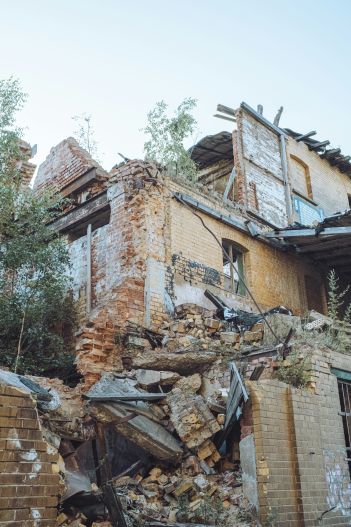
Noor Ahmad Akhundzadah, SAP
Noor Ahmad Akhundzadah, a visiting scholar at Cornell University, commented on Afghanistan’s construction vulnerability and the importance of modern seismic standards.
Additional Information
2025 Bulletin
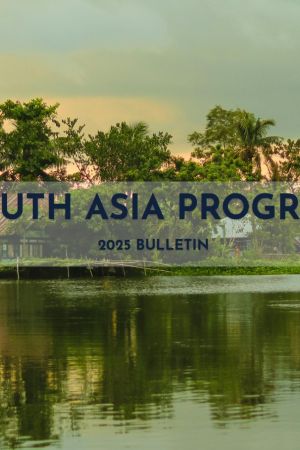
The 2025 Bulletin includes articles about Afghan students at Cornell, a student’s India internship, and a Visiting Scholar’s poem. In addition, the bulletin reviews a series of exciting events last year, including journalist P. Sainath’s campus visit, our first South Asian New Year Celebration, and the Fourth Cornell-Syracuse Consortium Symposium, previews the Tagore Lecture by Daisy Rockwell, and highlights a Community College Internationalization Fellowship on Afro-South Asian Musical Intersections.
Bulletin
Additional Information
Fall 2025 Events Calendar
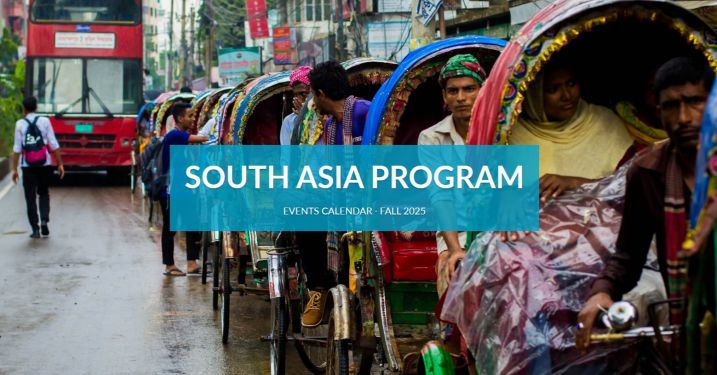
We're hosting an exciting series of events which cover the breadth and depth of South Asia, including our Seminar Series, Mondays at 12:15 pm in G08 Uris Hall.
The Paradox of Economic Nationalism: How India's Quest for Self-Reliance Constrains its Global Ambitions
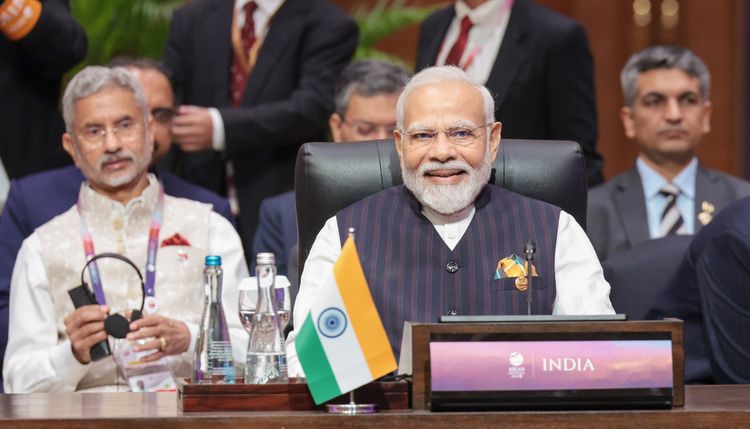
October 27, 2025
12:15 pm
Uris Hall, G08
Talk by Rohit Lamba (Economics, Cornell University)
India's pursuit of great power status faces a fundamental paradox: the economic nationalism that shapes its development strategy simultaneously undermines the global integration necessary for achieving its international ambitions. This article examines how India's current blanket commitment to strategic autonomy and self-reliance, while producing notable achievements, such as in digital infrastructure and financial inclusion, under Prime Minister Narendra Modi (2014-2024), ultimately constrains its ability to project power and influence globally. Drawing on developmental state theory, nationalism and civilizational-state typologies, and comparative analysis with East Asian success stories, I argue that India's economic nationalism operates through four transmission mechanisms—worldview constraints, state capacity limitations, decision-making pathologies, and foreign perception costs—that create a self-reinforcing feedback loop limiting its global reach. Highlighting India's distinctive political economy model as a premature and pluralist democracy specializing in high-skilled services, I argue that the country's development trajectory may be better served by strategies that leverage its democratic strengths and pursue an incremental but consistent reforms by consensus strategy while heeding Deng Xiaoping’s dictum of "hide your strength, bide your time" on the international stage. The analysis suggests that while India's fundamentals ensure respectable growth rates of 5-6%, achieving the 8-9% growth needed to fulfill its global ambitions before demographic dividends dissipate will require transcending the current overtly nationalist framework in the economic realm.
Rohit Lamba is an assistant professor of economics at Cornell University. He has previously held academic positions at the Pennsylvania State University, University of Pennsylvania, and New York University Abu Dhabi. He did his PhD in economics at Princeton University. He was also an economist at the Office of the Chief economic Adviser to the Government of India. His research spans economic theory and economic development. He is the co-author of the best-selling book Breaking the Mould: Reimagining India's Economic Future.
Additional Information
Program
Einaudi Center for International Studies
South Asia Program
Grant Delays Threaten Cultural and Language Studies Programs
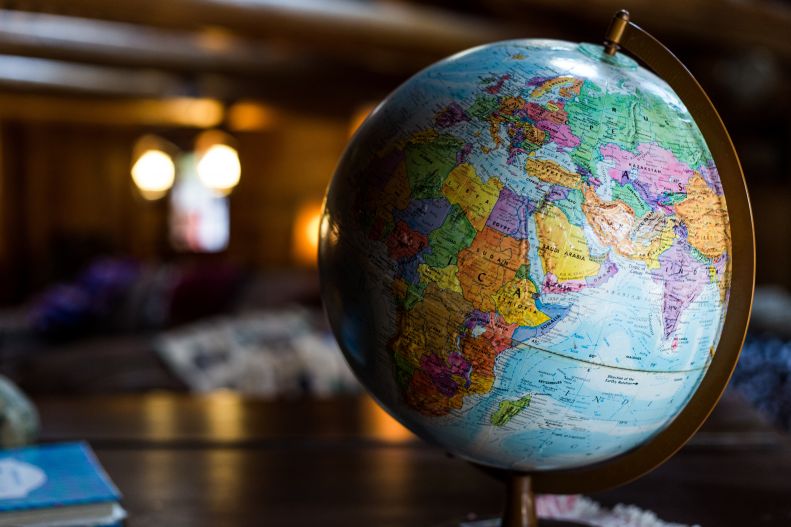
Einaudi Center NRCs
Director Ellen Lust: “Our current and future students are the foreign service officers, intelligence analysts and CEOs of the future…. Ultimately, these policies weaken the US’ global position and will make America less secure and prosperous.”
Additional Information
Information Session: Global Research Fellows
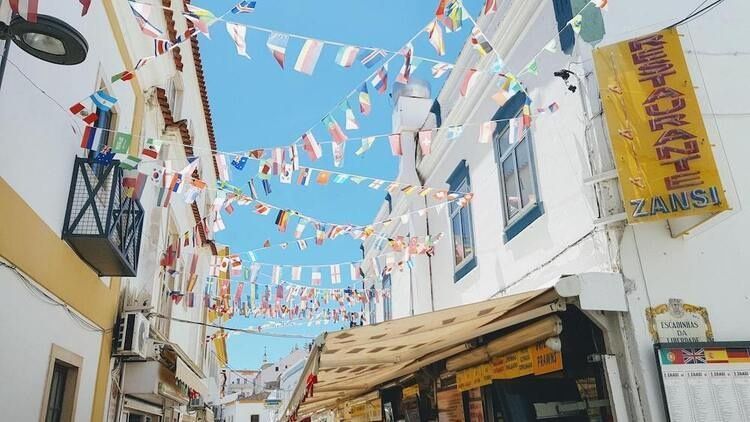
September 11, 2025
4:30 pm
Uris Hall, G08
Global Research Fellows are a new interdisciplinary research and professional development community at the Einaudi Center for advanced graduate students, Cornell postdocs, and visiting and local scholars. You'll find a community of fellow researchers with regional and international interests and a desire to foster a more equitable world.
Eligible students:
• Have completed at least two years of graduate education
• Engaged in research on a topic of global or regional studies significance
• Hold a strong desire to impact global challenges and create real-world solutions
• Interested in engaging and collaborating with other researchers
Can’t attend? Contact programs@einaudi.cornell.edu.
***
The Mario Einaudi Center for International Studies hosts info sessions for graduate and for undergraduate students to learn more about funding opportunities, international travel, research, and internships. View the full calendar of fall semester sessions.
Additional Information
Program
Einaudi Center for International Studies
Reppy Institute for Peace and Conflict Studies
East Asia Program
Southeast Asia Program
Latin American and Caribbean Studies
Institute for African Development
Institute for European Studies
South Asia Program
Migrations Program
Southwest Asia and North Africa Program
SAP 2025 Bulletin Now Available
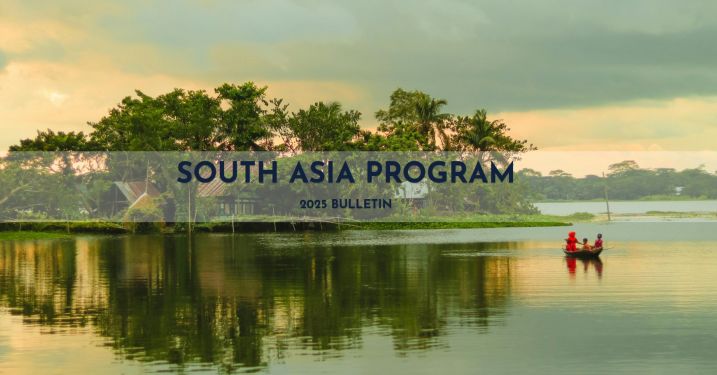
Our 2025 Bulletin includes articles about Afghan students at Cornell, a student's India internship, a Visiting Scholar's poem, and community college outreach.



